Entertainment
/ArcaMax

Column: Political giants and moral degenerates: My five best books of 2025
The blame for America’s current troubles lies squarely with the Democratic establishment. Donald Trump’s re-election was always unlikely given his low approval ratings and divisive style. The Democratic establishment turned it into a certainty by: (1) running an aged and obviously ailing candidate (2) using its power over the press, almost a...Read more
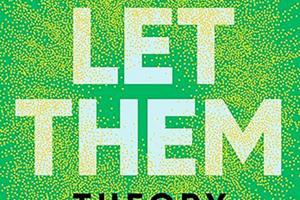
This week's bestsellers from Publishers Weekly
Here are the bestsellers for the week that ended Saturday, Dec. 13, compiled from data from independent and chain bookstores, book wholesalers and independent distributors nationwide, powered by Circana BookScan © 2025 Circana.
(Reprinted from Publishers Weekly, published by PWxyz LLC. © 2025, PWxyz LLC.)
HARDCOVER FICTION
1. "The Widow: A ...Read more
This week's bestsellers from Publishers Weekly
Here are the bestsellers for the week that ended Saturday, Dec. 13, compiled from data from independent and chain bookstores, book wholesalers and independent distributors nationwide, powered by Circana BookScan © 2025 Circana.
(Reprinted from Publishers Weekly, published by PWxyz LLC. © 2025, PWxyz LLC.)
HARDCOVER FICTION
1. The Widow. ...Read more
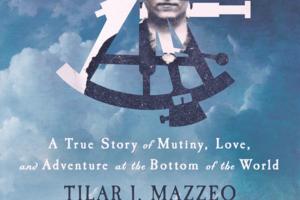
Review: 'The Sea Captain's Wife' did his job; she wasn't paid
“The Sea Captain’s Wife” is a riveting tale about the journey of a clipper ship from New York to San Francisco in 1856.
As the ship rounds Cape Horn — there is, of course, no Panama Canal yet — a hurricane hits. The ship pitches and tosses, washed over with 50-foot waves. This is one of the worst storms in years, “a veritable ...Read more

Capitol Hill insiders share favorite books of 2025
WASHINGTON — Between a government shutdown, three vote-a-ramas in the Senate and a new president taking office, it’s been a busy year for members of Congress. But spending bills weren’t the only page-turners they read.
Every December, we ask lawmakers, lobbyists, think tank types and other Beltway insiders the same question: What did you ...Read more

Those blurbs on book covers? Don't believe what you read
When book lovers grabbed William Kent Krueger’s early novels because of Lee Child’s praise on the cover — “Krueger hits the sweet spot every time” — there was just one issue: Child hadn’t read the books.
“Lee’s a pretty good friend. I asked him for a quote and he said, ‘I can’t read the book, Kent. I don’t have enough ...Read more

Review: 'Canticle' immerses readers in 13th-century mysticism
The cover of “Canticle” depicts a woman in a vibrant red, hooded cloak swirling away from the reader.
It hints at what’s inside: a mystical story that immerses us in an earlier century, in the vein of Lauren Groff’s "Matrix" or Sue Monk Kidd’s "The Book of Longings.“ If you loved either of them, as I did, you might have a hard time ...Read more
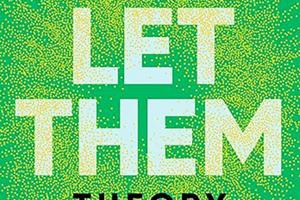
This week's bestsellers from Publishers Weekly
Here are the bestsellers for the week that ended Saturday, Dec. 6, compiled from data from independent and chain bookstores, book wholesalers and independent distributors nationwide, powered by Circana BookScan © 2025 Circana.
(Reprinted from Publishers Weekly, published by PWxyz LLC. © 2025, PWxyz LLC.)
HARDCOVER FICTION
1. "The Widow: A ...Read more
This week's bestsellers from Publishers Weekly
Here are the bestsellers for the week that ended Saturday, Dec. 6, compiled from data from independent and chain bookstores, book wholesalers and independent distributors nationwide, powered by Circana BookScan © 2025 Circana.
(Reprinted from Publishers Weekly, published by PWxyz LLC. © 2025, PWxyz LLC.)
HARDCOVER FICTION
1. The Widow. John...Read more

Sophie Kinsella, author of 'Shopaholic' book series, dies. 'We are heartbroken,' family says
Sophie Kinsella, bestselling author of the “Confessions of a Shopaholic” book series, has died days before her birthday, her family announced on Wednesday. She was 55.
“We are heartbroken to announce the passing this morning of our beloved Sophie (aka Maddy, aka Mummy). She died peacefully, with her final days filled with her true loves: ...Read more

Sophie Kinsella, author of 'Shopaholic' book series, dies. 'We are heartbroken,' family says
Sophie Kinsella, bestselling author of the "Confessions of a Shopaholic" book series, has died, her family announced on Monday. She was 55.
"We are heartbroken to announce the passing this morning of our beloved Sophie (aka Maddy, aka Mummy). She died peacefully, with her final days filled with her true loves: family and music and warmth and ...Read more

Holiday book guide 2025: The best gift books of the season, paired to some very specific people
My favorite part of the holidays is giving someone a book. I’m that person who gives everyone on my list a wrapped book then I joke it’s a box of socks. My least favorite part of the holidays, however, is realizing months later they still have not opened that book.
The secret to a happy pairing?
Being honest about who that person is, not ...Read more
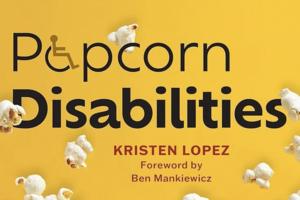
'Popcorn Disabilities' author Kristen Lopez looks at disability portrayals in movies
In her new book “Popcorn Disabilities: The Highs and Lows of Disabled Representation in the Movies,” film critic and author Kristen Lopez says she wasn’t interested in writing “an academic book or one that felt like eating your vegetables.”
Even so, some publishers were skeptical.
“It’s not a sexy topic, which I’m aware of!” ...Read more

So you've been ripped off? Raymond Biesinger has just the book for you
It’s payback time.
Raymond Biesinger says he wrote his new book, “9 Times My Work Has Been Ripped Off: An Informal Self-Defence Guide for Independent Creatives,” for a very simple reason.
“Spite, quite honestly,” he laughs, before adding another purpose. “And tactics. It was a tactical move.
“My goal with the book is to open up ...Read more

Review: 'Sunshine Man' has two protagonists; one wants to kill the other
It might be the best opening line of a novel this year: “The week I shot a man clean through the head started like any other.”
That’s how Emma Stonex’s “The Sunshine Man” starts. Her followup to “The Lamplighters” (a book club favorite — or at least, a favorite of my book club) alternates between two perspectives. One is the ...Read more
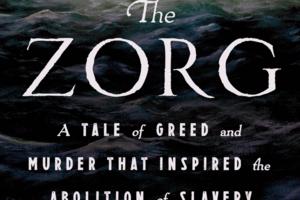
The 20 best fiction and nonfiction books
Publishers will release as many as 1 million books this year, so good luck summarizing that. But if what I read and loved in 2025 is any indication, writers have pulled their focus in from the big picture to the world writ small: how families are adapting to the climate we live in, how a person overwhelmed by the screwed-up justice system can ...Read more

The 10 best books of 2025: Censorship, crime and compassion
CHICAGO — There are 49 books in front of me, stacked like colorful bricks in a wall. These are the 49 books I didn’t include in the Chicago Tribune’s 10 Best Books of 2025. If you’re curious about the recipe for this list, here’s how I do it: I read all year long, and when I finish a book and loved it — a comic book, a mystery, a ...Read more
This week's bestsellers from Publishers Weekly
Here are the bestsellers for the week that ended Saturday, Nov. 29, compiled from data from independent and chain bookstores, book wholesalers and independent distributors nationwide, powered by Circana BookScan © 2025 Circana.
(Reprinted from Publishers Weekly, published by PWxyz LLC. © 2025, PWxyz LLC.)
HARDCOVER FICTION
1. The Widow. ...Read more
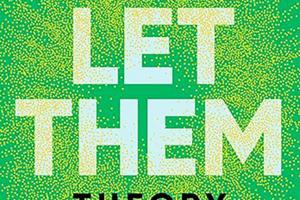
This week's bestsellers from Publishers Weekly
Here are the bestsellers for the week that ended Saturday, Nov. 29, compiled from data from independent and chain bookstores, book wholesalers and independent distributors nationwide, powered by Circana BookScan © 2025 Circana.
(Reprinted from Publishers Weekly, published by PWxyz LLC. © 2025, PWxyz LLC.)
HARDCOVER FICTION
1. "The Widow: A ...Read more
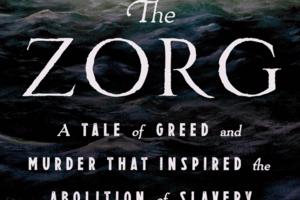
Review: A shocking act at sea damns 'The Zorg'
The Middle Passage has been a touchstone of storytelling for generations — the television series “Roots” and Charles Johnson’s award-winning “Middle Passage” spring to mind — but no artistic work can truly translate its atrocities.
Hence the necessity of nonfiction: Siddharth Kara’s wrenching, superb “The Zorg” depicts a ...Read more










